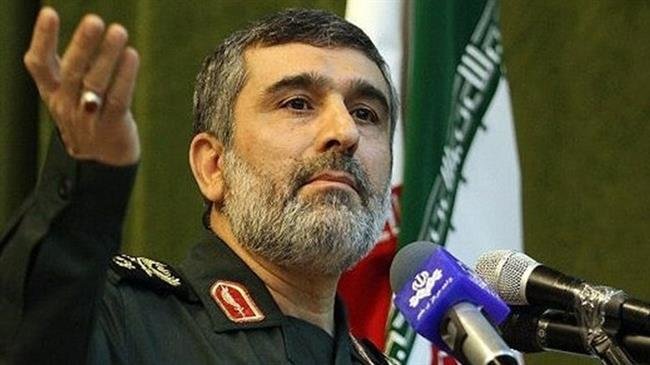
RNA - “We will continue to conduct our missile tests and this latest one was particularly significant,” Brigadier General Amir Ali Hajizadeh , the commander of the Islamic Revolution Guards Corps (IRGC)’s Aerospace Division, said Tuesday.
Referring to US Secretary of State Mike Pompeo’s position on Iran’s recent test, the commander said, “Reactions as such are proof that this issue was so important to them (Americans) that it made them cry out.”
He said that Iran conducts more than 50 tests each year. “That the Americans react to certain tests is indicative of the [amount of] pressure on them.”
The commander did not identify the type of the missile that was tested recently.
In a statement released on Twitter on December 1, Pompeo claimed Iran had “just test-fired a medium range ballistic missile” in violation of the United Nations Security Council Resolution 2231.
UN Security Council Resolution 2231 endorsed the 2015 international nuclear agreement, officially known as the Joint Comprehensive Plan of Action (JCPOA), from which Washington has withdrawn under the pretext that it should have included Iran's missile program as well.
Tehran rejected Pompeo’s claims, saying its conventional missile program is defensive and does not violate that resolution, which “calls on” Iran “not to undertake any activity related to ballistic missiles designed to be capable of delivering nuclear weapons, including launches using such ballistic missile technology.”
The Security Council also met behind closed-doors last week at the request of the US to discuss the alleged missile test, but the session ended with no joint statement.
According to Press TV, Iran’s UN mission said in a statement on the same day that Tehran was not in breach of the resolution and that its missiles were only designed to be capable of delivering conventional - not nuclear - warheads.
Over the past years, Iran has made major breakthroughs in its defense sector and attained self-sufficiency in manufacturing military equipment and hardware despite being under sanctions and economic pressures.
Tehran asserts that its missile arsenal is strictly in the service of the country’s defensive purposes and poses no threat to other states.
Defense Minister Brigadier General Amir Hatami said recently that Iran is currently one of the world’s topmost missile powers despite having been subjected to severe sanctions during the past 40 years.
847/940